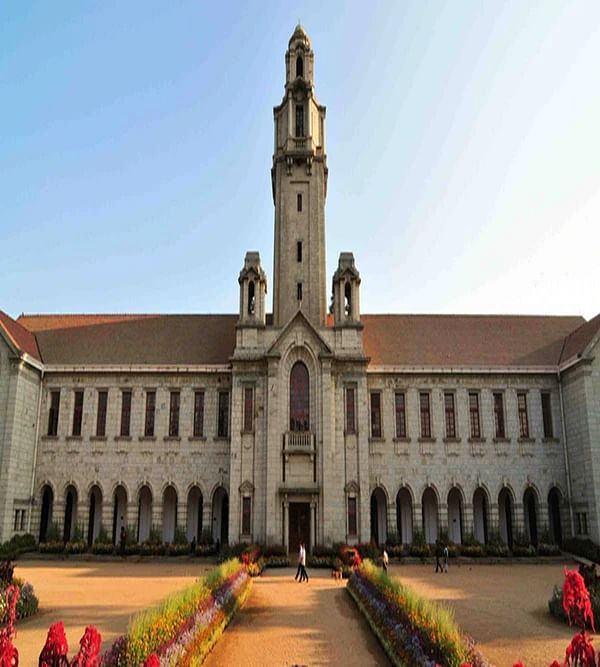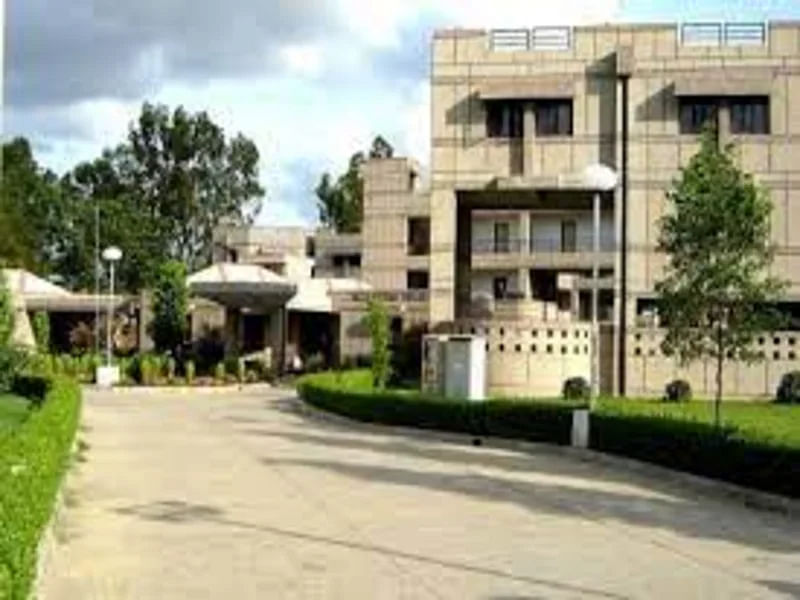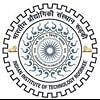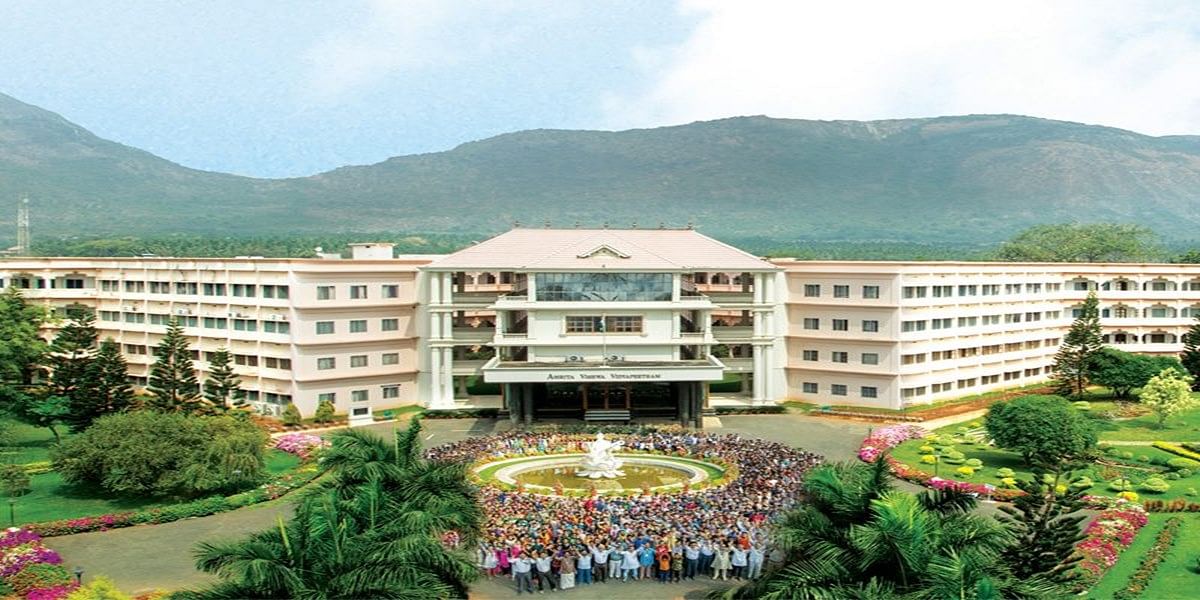BSc Syllabus and Subjects

The BSc syllabus in India includes a combination of courses in the chosen field of study such as Physics, Chemistry, Maths, Zoology, Botany, Computer Science, Nursing, Microbiology, and more. The Bachelor of Science course curriculum is structured over six semesters providing students with an extensive understanding of the theoretical and practical coursework.
The B.Sc subjects are offered as core and elective courses. Core courses include 12 papers with four from each of three disciplines chosen. Elective subjects allow specialization, with 6 papers selected from disciplines of interest. In addition, students can undertake Ability Enhancement Courses and Skill Enhancement Courses.
The B.Sc course structure is based on the UGC recommendation and the syllabus structure differs depending on the institutions and chosen specialization. Some of the popular BSc courses offered by colleges in India include BSc Mathematics, BSc Physics, BSc Chemistry, BSc Computer Science, BSc Zoology, BSc Biotechnology, and more.
Table of Contents
BSc Syllabus: Overview
The BSc syllabus followed in most institutions in India is based on the recommendations made by the UGC. The syllabus of BSc is designed to provide students with a comprehensive knowledge in science and related subjects while providing avenues for specialization in various fields of science.
The BSc syllabus is divided into majors and minors through a blend of core and elective courses. The BSc curriculum includes practical learning experiences including laboratory work, research projects, and internships.
BSc Syllabus for Top Specialization
The BSc subjects differ based on the field of study selected by the students. Some of the common BSc course specializations include BSc Mathematics, BSc Computer Science, BSc Physics, BSc Chemistry, BSc Zoology, and more.
Below listed are the BSc syllabus for some of the popular areas of specialization.
BSc Mathematics Syllabus
The BSc Mathematics syllabus covers important topics such as Algebra, Calculus, Trigonometry, and more. Below listed is the semester wise BSc Mathematics syllabus followed by the institutions in India.
| Semester I | Semester II |
| English- I | English- II |
| Calculus | Analytical Geometry of Three Dimension |
| Algebra-I | Geometry & Vector Calculus |
| Trigonometry | Calculus- II |
| Semester III | Semester IV |
| Algebra-II | Mathematical Analysis |
| Calculus-II | Static & Dynamic |
| Set Theory and Theory of Equations | Vector Analysis |
| Differential Equations | Riemann Integration and Series ofFunctions |
| Computer Graphic (Elective) | Ring Theory and Linear Algebra I |
| Semester V | Semester VI |
| Real Analysis | Complex Analysis and Ring Theory |
| Elementary Number Theory & Advanced Algebra | Advanced Calculus |
| Complex Analysis | Complex Analysis-II |
| Numerical Methods Practical using C | Programming in C Language |
| Human Rights and Mathematics for Environmental Studies (Elective) | Graph Theory and Metric Spaces |
| Partial Differential Equations andApplications | Project Work |
Read more: BSc Mathematics Syllabus
BSc Computer Science Syllabus
The BSc syllabus for Computer Science deals with topics such as Statistics, Programming, Data Analysis, etc. The B.Sc Computer Science syllabus is detailed in the table below.
| Semester I | Semester II |
| Introduction to Digital Electronics | Front Office Management |
| Basics of Computer Science | Discrete Mathematics |
| Environmental Sciences | Computer Organization |
| Foundation course in Mathematics | Fundamental of Open Source Software-LINUX |
| English | Value and Ethics |
| Semester III | Semester IV |
| Object-Oriented Programming using C++ | Database Management Systems |
| Operating Systems Concepts | Introduction to Computer Network |
| Introduction to Data Structures | Numerical Analysis |
| System Analysis and Design | System Programming |
| Technical Writing | Report Writing(Yantra) |
| Analytical Skill Development-I | Analytical Skill Development-II |
| Semester V | Semester VI |
| Python Programming | Introduction to Web Technology |
| Introduction to Software Engineering | Project Work |
| Mobile Application Development | - |
| Personality Development Program | - |
| Minor Project-I | - |
Read more: BSc Computer Science
BSc Physics Syllabus
The BSc Physics syllabus covers important topics such as Waves, Optics, Kinetic Theory, Thermodynamics, and more. Below listed is the semester wise BSc syllabus for Physics.
| Semester I | Semester II |
| Properties of Matter and Acoustics | Mechanics-II |
| Allied Mathematics – I | Allied Mathematics – II |
| Mechanics-I | Environmental Studies |
| Electricity and Magnetism | Optics |
| Electro-Magnetic Induction and Electronic Devices | Thermal Physics and Oscillations |
| Semester III | Semester IV |
| Mathematics-I | Mathematics-III |
| Analog Systems and Application | Allied Chemistry-II |
| Thermal and Statistical Physics | Physical Optics-II |
| Allied Chemistry-I | Digital Systems and Applications |
| Sound Waves, Applied Acoustic, Ultrasonic and Power Supply | Modern Physics Elements |
| Practicals/Lab Work | Practicals/Lab Work |
| Semester V | Semester VI |
| Solid State Physics-I | Nuclear Physics-II |
| Electricity & Magnetism | Applied Mechanics |
| Electrodynamics and Electronics-II | Quantum Mechanics and Relativity |
| Nuclear Physics-I | Solid State Physics-II |
| Quantum Mechanics Advanced | Advanced Thermal and Statistical Physics |
| Practical/Lab Work | Practical/Lab Work |
| Minor Project | Project |
Read more: BSc Physics Syllabus
BSc Chemistry Syllabus
The BSc syllabus for Chemistry focuses on topics such as Organic and Inorganic Chemistry, Physical Chemistry, Materials Concepts, and more. Below listed is the semester wise BSc Chemistry syllabus.
| Semester I | Semester II |
| Chemistry Fundamentals | Medicinal Chemistry Fundamentals |
| Physical Chemistry Principles | Concept of Biochemical Analysis |
| Quantitative Analysis | Qualitative Analysis |
| Practical/Laboratory Work | Practical/Laboratory Work |
| Semester III | Semester IV |
| Understanding Instrumental Analysis | Physical Chemistry-II |
| Inorganic Chemistry-I | Organic Chemistry-II |
| Organic Chemistry-I | Advanced Materials Concept |
| Biostatistics | Quantum Mechanics and Analytical Techniques |
| Physical Analysis Concepts | Environmental Studies |
| Practical/Laboratory Work | Practical/Laboratory Work |
| Semester V | Semester VI |
| Organic Chemistry-III | Physical Chemistry-IV |
| Physical Chemistry-III | Spectroscopic Methods |
| Analytical Chemistry Concept-I | Analytical Chemistry Concept-II |
| Elective-I | Elective-III |
| Elective-II | Elective-IIV |
| Understanding Organic Synthesis-A | Understanding Organic Synthesis-B |
| Practical/Laboratory Work | Practical/Laboratory Work |
Read more: BSc Chemistry Syllabus
BSc Zoology Syllabus
The BSc Zoology syllabus deals with important topics such as Anatomy, Genetics, Cell Biology, and more. The BSc syllabus for Zoology is detailed in the table below.
| Semester I | Semester II |
| Life and Diversity of Animals-Nonchordates(Protozoa to Annelida) | Life and Diversity of Animals- Nonchordates(Arthropoda to Hemichordata) |
| Invertebrate Zoology-I | Invertebrate Zoology-II |
| Animal Discovery | Comparative Anatomy and Development Biology ofVertebrates |
| Semester III | Semester IV |
| Life and Diversity of Animals-Chordates(Protochordata to Amphibia) | Life and Diversity of Animals-Chordates (Reptilia,Aves and Mammals) |
| Vertebrate Zoology –I | Vertebrate Zoology –II |
| Physiology, Biochemistry and History | Genetics and Evolutionary Biology |
| Semester V | Semester VI |
| General Mammalian Physiology I | Reproductive Biology |
| Cell Biology | General Mammalian Physiology II |
| Applied Zoology and Ethology | Research/Project |
| Elective-I | Elective-II |
| Value Education | Practical/ Laboratory Work |
| Practical/ Laboratory Work | - |
Read more: BSc Zoology Syllabus
Other Important B.Sc Specializations Syllabus:
Read more: List of all BSc Specializations
BSc Subjects- Core and Elective
The BSc subjects usually include Mathematics, Physics, Chemistry, Biology, Computer Science, Environmental Science, Zoology, Botany, etc. However, these subjects may vary depending on the specialization and university offering the BSc course.
BSc Core Subjects
Below listed are the core BSc subjects and the topics covered under popular BSc specializations such as BSc Physics, BSc Chemistry, BSc Maths, BSc Zoology, and more.
| Specialization | Core Subjects | Topics Covered |
| Physics |
|
Wave & Optics, Newton Mechanics, Laws of Thermodynamics, Special Relativity, Nuclear Structure, Entropy, Polarization, Wave Particle Duality |
| Chemistry |
|
Atomic Structure, Molecular Geometry, Spectroscopy, Chemical Kinetics, Surface Chemistry, Drug Development, Bioorganic Chemistry, Biomolecules, Nanomaterials, Organic Synthesis Methods |
| Mathematics |
|
Limit and Continuity, Leibnitz’s Theorem, Rolle’s Theorem, Finite and Infinite Set, Continuous Functions, Integration, Differential and Partial Differentiation, Boolean Algebra, Random Variables |
| Zoology |
|
Animal Diversity, Animal Physiology, Animal Behaviour, Animal Ecology, Developmental Biology, Evolutionary Biology, Genetics and Evolutionary Biology, Reproductive Endocrinology, Reproductive Biology |
| Botany |
|
Plant Anatomy, Gymnosperms, Pollination, Plant Physiology, Biometrics, Taxonomy, Cell Biology, Gene Mutations, Microorganisms, Plant Disease Epidemiology, Quantitative Inheritance |
| Computer Science |
|
OOP, Data Structures, GUI Programming, Set Theory, Graph Theory, 2D and 3D Transformations, STL, Exception Handling, Java Syntax, Data Types, SQL Programming |
| Biotechnology |
|
Biomolecules Structures, Enzyme Kinetics, Microbial Morphology, Homeostasis, DNA Isolation, Recombinant Protein Production, DNA Fingerprinting Techniques, Genomic and Proteomic Techniques, Bioinformatics |
| Microbiology |
|
Metabolic Processes and Functions of Microorganisms, Microbial Growth, Microbial Genetics, Genetic Variation, Immune System, Immunopathology, Genetic Engineering in Microbiology, Microbial Cultivation |
BSc Elective Subjects
The BSc course offers specialization in various disciplines offering a range of elective subjects in addition to core BSc subjects listed above. The BSc elective subjects covered are listed in the table below.
| Specialization | Elective Subjects | Topics Covered |
| Physics |
|
Celestial Mechanics, Fluid Dynamics, Nanomaterials, Semiconductors, Solar Energy, Numerical Methods, Atmospheric Modeling, Radiation Therapy, Newtonian Mechanics, Central Force Motion |
| Chemistry |
|
Crop Protection Chemicals, Agrochemical Analysis, Forensic Toxicology, Enzyme Kinetics, Quantum Chemical Calculations, Fuel Cell Technology, Chromatographic Techniques, Green Nanotechnology |
| Mathematics |
|
De Morgan’s Law, Equivalence Relations, Synthetic Division, Ordinary Derivatives of Vectors, Cross Product and Triples Product of Vectors |
| Zoology |
|
Biological Systems, Role of Animals in Agriculture, Industry, Aquatic Organisms, Lab Tests, Imaging Technologies, Medicine, Conservation Strategies |
| Botany |
|
Seed Development, Seed Dispersal Mechanisms, Fruit Anatomy, Fruit Breeding, Medicinal Plants, Ethnobotanical Knowledge, Genomic and Proteomic Databases, Biofertilizers, Plant Breeding, Postharvest Physiology |
| Computer Science |
|
CPU Scheduling Algorithms, File System Organization and Optimization, E-Commerce Business Models, Cloud Service Models, Virtualization Technologies, Intrusion Detection, LAN and WAN Technologies, Testing Methodologies |
| Biotechnology |
|
Nanoscience, Nanomaterials Synthesis, Immobilization Techniques for Enzyme Stabilization, DNA Profiling Techniques, Biofertilizer Evaluation, Population Ecology, Biological Data Analysis |
| Microbiology |
|
Microbial Cell Structure, Biomolecules, Clinical Chemistry, Biochemical Markers of Diseases, Blood Chemistry Analysis, Microorganisms in Food and Dairy Products, Fermentation Process, Foodborne Pathogens |
BSc Distance Education Syllabus
The BSc Distance Education program is an undergraduate degree that spans a period of 3 - 6 years. The program offers flexibility for students who cannot attend regular classes. Some of the popular BSc Distance Education courses include BSc IT, BSc Mathematics, BSc Psychology, etc.
The Bachelor of Science Distance Education syllabus followed by most colleges in India is given below.
| Semester I | Semester II |
| English | English |
| Physics I | Physics II |
| Mathematics I | Mathematics III |
| Mathematics II | Mathematics IV |
| Computer Science I | Computer Science II |
| - | Skill Enhancement Course |
| Semester III | Semester IV |
| Physics III | Physics IV |
| Mathematics V | Mathematics VII |
| Mathematics VI | Mathematics VIII |
| Computer Science III | Computer Science IV |
| Ability Enhancement Compulsory Course I | Ability Enhancement Compulsory Course II |
| Semester V | Semester VI |
| Elements of Chemistry | Physics VI |
| Human Resource Management & Organizational Behaviour | Mathematics IX |
| Statistics | Computer Science VI |
| Skill Enhancement Course III | Inference Theory |
| Skill Enhancement Course IV | Physics / Computer Science / Mathematics X |
BSc Course Structure
The B.Sc syllabus is focused on providing students with specialized knowledge and hands-on training in a variety of fields. The BSc subjects 1st year provide a fundamental review of 10+2 fundamentals and introduce some cutting-edge ideas in the field.
Along with the required dissertation submission and viva voce, the programme also includes CBCS electives, which provide possibilities for students to choose subjects often in the third year. The BSc course outline consists of:
- VI Semesters
- Core and Elective Subjects
- Practical Training
- Projects
- Internship
B.Sc Teaching Methodology and Techniques
The Bachelor of Science teaching methods encompass a range of strategies such as traditional lectures, case studies, experimental learning, and more aimed at providing an extensive understanding of the syllabus. Below listed are the BSc teaching methodologies and techniques used in the curriculum.
- Traditional Lectures
- Problem-Based Learning
- Laboratory Experiments
- Group Projects
- Group Discussions/Interactive Sessions
- Field Trips
- Research Projects
- Seminars
B.Sc Projects
Research projects are essential for determining how much knowledge is applied practically and connecting the subject to a certain sector.
Practical learning also helps students comprehend more about the functions of industries and the stages of product development. Interdisciplinary project work is another option, which will broaden students' understanding by incorporating different specialities.
Below are some popular BSc project topics:
- Design of Computerized Taxation and Application of Insurance
- Food Court Automation using Android
- Design of Two System Intercom
- Impact of New Product Development on an Organization
BSc Book
The BSc books help students understand the concepts and topics covered in the syllabus. There are numerous BSc reference books that students can refer to based on their specializations. Below listed are some of the best BSc books for common BSc subjects.
| Books | Author | Topics Covered |
| Calculus and Analytic Geometry | G.B. Thomas and R.L. Jinney | Limits and Continuity, Derivatives, Application of Derivatives, Integration |
| Modern Physics | John R. Taylor, Chris D. Zafiratos | Special Relativity, Quantum Mechanics, Atomic Physics, Nuclear Physics, Particle Physics |
| Concise Inorganic Chemistry | J.D. Lee | Atomic Structure, Periodicity, Chemical Bonding, Coordination Chemistry |
| Genetics | P.K. Gupta | Principles of Genetics, Mendelian Inheritance, DNA Structure |
| Theory of Computer Science | K. L. P. Mishra and N. Chandrasekaran | Automata, NLP, Computation Techniques, Data Structures |
Top BSc [Bachelor of Science] Colleges
Top Science Entrance Exams
BSc Fee Structure
FAQs on BSc Syllabus and Subjects
Q: What is the BSc 1st year syllabus?
Q: Which are the elective subjects in the BSc course?
Q: Can I do BSc without Maths?
Q: What is the BSc 4th semester syllabus for Maths?
Q: Which are the toughest subjects in BSc?
Q: What are the important subjects in distance BSc 2nd semester syllabus 2024?
Q: What is the BSc 2nd semester syllabus for Physics?
Q: How are the students evaluated in the BSc course?
Q: Can we change subject in BSc?
























